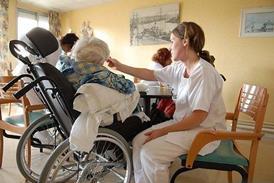North by North West offers essential insight into NHS matters in the North West of England. Contact me in confidence here.
The guilty verdicts in the trial of Lucy Letby were colossal for a huge number of people beyond the defendant, her victims, and their respective families.
The police detectives secured what is likely to be the biggest conviction of their careers, while the paediatricians at the Countess of Chester Hospital gained full vindication of their efforts to raise the alarm over Letby and push for police involvement.
The verdicts were also life-changing for some of the trust’s former executives who resisted a criminal investigation in 2016 and early 2017.
Former CEO Tony Chambers and senior colleagues would still have faced significant scrutiny in the event of an acquittal (after all, the case was strong enough to prosecute), but nothing close to the levels of blame and vilification the guilty verdicts have unleashed.
There is strong evidence of major failings by senior executives, which boil down to misjudging the seriousness and sincerity of the paediatricians’ concerns, failing to ensure those concerns were investigated more thoroughly, and being too slow to accept police involvement.
Beyond what might be called honest mistakes, there are also allegations that inappropriate threats were made against the doctors and that non-executive board members were misled about the extent to which the suspicious cases had been investigated.
No nuance
However, we should hesitate before making final judgements, because there’s still not been a proper investigation into any of this. Chambers and co have not yet had a reasonable forum to tell their side of the story in detail, and it’s possible there are significant mitigations or other important evidence.
The paediatricians have been talking to the media privately for many months, which meant their side of the story was already understood and typed up, with pre-recorded interviews ready to air as soon as the verdicts were known.
For the former Countess execs, talking to journalists ahead of the verdicts would have been a tougher decision, as defending themselves strongly could be seen as disrespectful, by appearing to prioritise their reputation over showing compassion and contrition.
They also knew there were legitimate criticisms of how they responded to concerns about Letby, and any mitigation was unlikely to be heard in the storm that would rage around the case of Britain’s most prolific child killer.
The headlines were already determined, backed by some robust evidence, and no one would care about nuance or complicating evidence once the storm had begun.
Getting a full picture
The case against Letby would have been an immense challenge for any executive team, and it’s easy to criticise their actions with the benefit of hindsight.
This may not be a popular view, but NxNW believes some of the more extreme coverage of the execs’ actions since the guilty verdict – and repeated references to their salaries, lifestyles and pensions – has been premature.
While the multiple allegations against them appear to stand up to scrutiny, we should be open to the possibility that important information is missing.
Hopefully, the public inquiry will get to the full picture.
Insulin failings glossed over
One aspect of the case which has been largely glossed over, is the significance of the attempted murders of two babies through insulin poisoning.
These were crucial in making the case against Letby, as they effectively proved someone had deliberately poisoned the babies.
Yet the insulin readings, or their importance, were only noticed once police experts reviewed the cases years later. They should have been picked up by clinical governance processes at CoCH shortly at the time but were missed. Those processes were carried out and overseen by clinicians.
Had they been picked up at the time, this would have provided the hard evidence the execs had been demanding, and may have prevented two subsequent deaths.
There were probably various systemic issues that caused that failing, as well as individual error, and the inquiry should seek to establish why that evidence was missed.
False assurance
We know staffing levels were a concern on the neonatal unit, but no major systemic issues were discovered by the Care Quality Commission during an inspection at CoCH in early 2016, almost bang in the middle of Letby’s crimes.
Inspectors rated children’s and maternity services as “good”, albeit with a “requires improvement” rating for safety in children’s services, and praised the trust’s culture overall.
This will have provided the trust with some assurances over the quality of the services, which we now know was a false impression.
The CQC said it had no record of consultants raising concerns about neonatal mortality rates, which is disputed by some of the clinicians.
Something must be done
The fallout from the Letby case has resulted in a new push to create a regulator for managers, with NHS England discussing new powers to disbar people where serious misconduct is found.
This comes in response to concerns that Mr Chambers has held several interim CEO roles since leaving the Countess in 2018.
But let’s be clear. It’s very unlikely that a managerial regulator would have made a legally sound ruling about Mr Chambers in time for him to be barred from taking those other roles (in the event it did find there was serious misconduct).
There would have to have been a formal investigation, which he likely would have challenged, and these processes often take years. The criminal investigation and court proceedings against Letby would also have caused further complications and probable delays.
The former nursing director at the Countess, Alison Kelly, was referred to the Nursing and Midwifery Council several years ago, but the police requested they pause their investigation.
A formal regulator for managers may well be the right thing to do. Not least because it would remove the imbalance which clinicians often feel, in that they can be threatened with, and subject to, referrals to the General Medical Council and NMC, but there is no similar body to which managers can be referred.
But it wouldn’t have made a difference with the Countess execs, and smacks of “something must be done”.
A more realistic solution would have been for Mr Chambers to be unofficially overlooked for new roles, based on a quiet word from NHSE (is this why he was forced to take roles in the South when he still lives in the North West?). A risky approach legally, if word were to get out.
Gilby departure
Susan Gilby, who replaced Mr Chambers as CEO in 2018, has been prominent in the post-trial media coverage, saying she was immediately concerned by the way executives had dealt with the doctors’ suspicions.
Some have drawn links with her departure from the trust last year, suggesting she was “forced out” after she “criticised failures which likely led to deaths of newborns”.
But this is conflating separate issues.
Dr Gilby’s departure came after a serious breakdown in relations with trust chair Ian Haythornthwaite, whom she has accused of bullying and aggressive behaviour (which he disputes). There has been no suggestion the breakdown was connected to the Letby case.



























12 Readers' comments